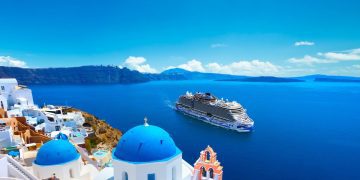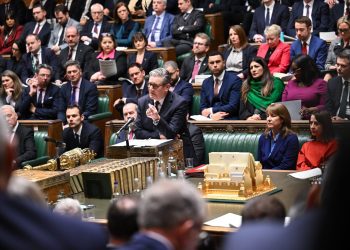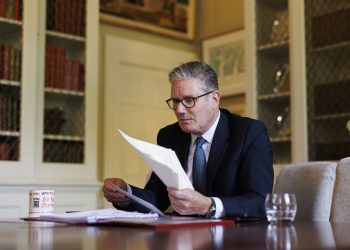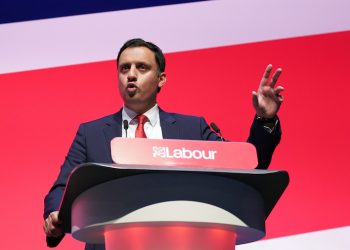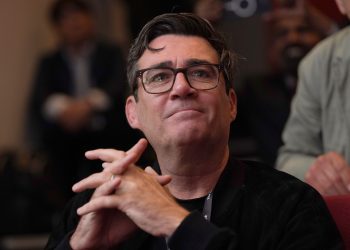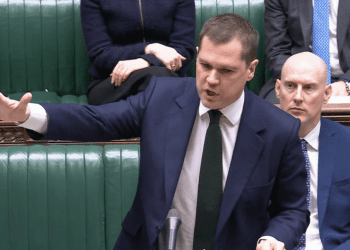Ersin Tatar is the leader of the Turkish Republic of Northern Cyprus. On a recent diplomatic visit to London, he sat down for an exclusive conversation with Politics.co.uk.
Ahead of visits from democratically-elected foreign leaders to Westminster, usually the red carpets are hoovered and the finest silverware is polished. But when Ersin Tatar, the leader of the Turkish Republic of Northern Cyprus (TRNC), visited London last week, it was a much more muted affair. His administration is recognised only by Ankara, following a 1974 Greek-backed coup d’état aimed at uniting Cyprus with Greece. In response, the Turkish military launched an intervention. A short but intense period of fighting ensued, displacing thousands and dividing the island. Critics view the Turkish presence as an illegal occupation. Türkiye maintains it was a justified intervention under international treaty obligations. The island remains divided to this day.
The UK, like the rest of the international community bar Türkiye, does not recognise the TRNC and continues to support reunification under a bi-zonal, bi-communal federation, a position backed by successive UN Security Council resolutions.
This delicate diplomatic environment creates a difficult dynamic for British policymakers.
Regardless, Tatar was determined to make his case for a ‘two state solution’ in Cyprus and did so in the various committee rooms of Westminster, meeting MPs and stakeholders with a particular interest in solving what has long been referred to as the ‘Cyprus problem’.
Politics.co.uk sat down for an exclusive interview with Tatar in Westminster.
“You have to have your voice heard in London,” Tatar said, noting that a quarter of a million Turkish Cypriots live in Britain and that the UK remains a guarantor power under the 1960 settlement that created the Republic of Cyprus.
During two days of back-to-back meetings, he pressed ministers and MPs to treat the island as home to “two peoples”, each entitled to self-government. Tatar told Europe Minister Stephen Doughty that London’s current stance, in his words, “does not restrain fresh Greek Cypriot pressure on the north.” He argues that Nicosia has widened legal actions abroad, from property disputes to Interpol alerts, in order to choke investment and travel. “Arresting investors over land that was expropriated half a century ago is absolutely unacceptable,” he said, pointing out that both communities appropriated abandoned property in 1974, yet only one side faces criminal claims overseas.
Tatar, who enjoys a close relationship with President Recep Tayyip Erdoğan of Türkiye, also met with former Prime Minister Boris Johnson, whose great-grandfather was Ali Kemal, a Turkish journalist, politician and writer.
Intercommunal violence on Cyprus is now a thing of the past, but travel and tourism have become the new battleground. Direct flights to Ercan airport in the north remain barred, forcing every traveller from the UK to change planes in Türkiye or cross the Green Line from Larnaca in the south. Tatar wants a compromise that maintains a brief security stop in Türkiye but allows passengers to remain on board the plane. “In this day and age it is discomforting,” he said, insisting the newly built terminal in Northern Cyprus meets international standards and poses no security risk. This position is supported in Westminster by Sammy Wilson MP, the DUP member for East Antrim.
The wider pitch rests on what Tatar calls a “more realistic” approach to talks about the future of the island. He rejects any imposed blueprint, arguing that regional wars have eroded faith in quick diplomatic fixes. Instead, he proposes a bridge period of practical co-operation — trade corridors, tourism links, environmental projects, while the constitutional question remains frozen. “Until we get to a final settlement we must keep the channels open or the two sides will stop talking,” he warned.
Those words resonated with diaspora groups gathered in a north London community centre that Tatar visited during his time in the capital, many of whom still own property across the divide. They want direct air links and an end to claims against land that make mortgage finance impossible. Tatar left them with a simple instruction: write to your MP, insist that Britain apply the even-handedness it promised in 1960.
No red carpet, no state banquet. Yet for the leader of a territory that lives under embargo and a degree of isolation, meetings with MPs and ministers interested in finding a resolution in Cyprus mattered much more than a silver plate in Buckingham Palace or a photo opp outside No 10.
Politics.co.uk is the UK’s leading digital-only political website. Subscribe to our daily newsletter for all the latest news and analysis.
The post ‘Treat us as two peoples’: Ersin Tatar on the future of Northern Cyprus and the UK’s role appeared first on Politics.co.uk.











